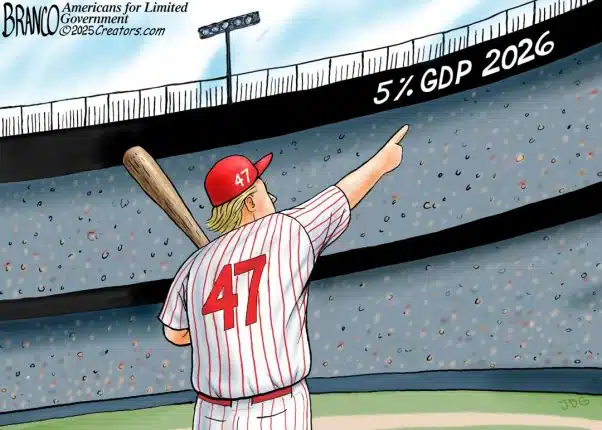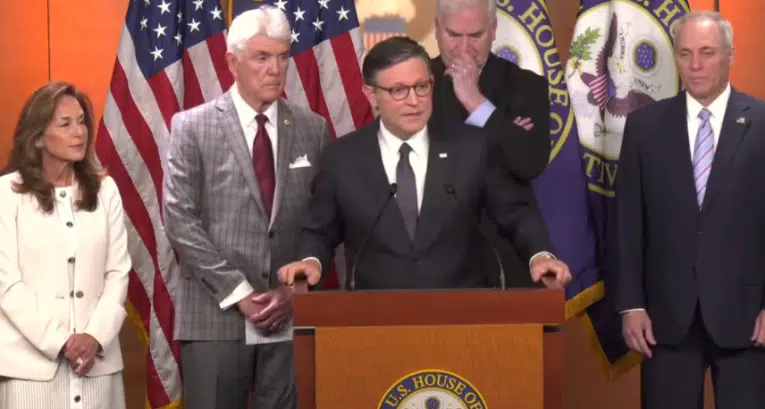 By Bill Wilson — The Obama Administration has turned to billionaire Warren Buffett, chairman and chief executive of financial giant Berkshire Hathaway, to make the case for raising taxes on the rich because, says Buffett, he can afford it. On Aug. 22, the White House reportedly chatted with Wall Street’s most famous investor to get his thoughts about the sputtering economy.
By Bill Wilson — The Obama Administration has turned to billionaire Warren Buffett, chairman and chief executive of financial giant Berkshire Hathaway, to make the case for raising taxes on the rich because, says Buffett, he can afford it. On Aug. 22, the White House reportedly chatted with Wall Street’s most famous investor to get his thoughts about the sputtering economy.
What likely got the Administration’s attention was Buffett’s oped in The New York Times. Buffett proposed that “It’s time for our government to get serious about shared sacrifice.” He implied he would like to see the capital gains be treated equally as income.
To wit, he wrote of the so-called “super-rich,” which he apparently defines as households earning $1 million or more a year: “Most wouldn’t mind being told to pay more in taxes as well, particularly when so many of their fellow citizens are truly suffering.” Isn’t that nice of Mr. Buffett?
But if he were truly sincere, perhaps he might simply try paying the taxes the Internal Revenue Service (IRS) says his company owes? According to Berkshire Hathaway’s own annual report — see Note 15 on pp. 54-56 — the company has been in a years-long dispute over its federal tax bills.
According to the report, “We anticipate that we will resolve all adjustments proposed by the U.S. Internal Revenue Service (‘IRS’) for the 2002 through 2004 tax years at the IRS Appeals Division within the next 12 months. The IRS has completed its examination of our consolidated U.S. federal income tax returns for the 2005 and 2006 tax years and the proposed adjustments are currently being reviewed by the IRS Appeals Division process. The IRS is currently auditing our consolidated U.S. federal income tax returns for the 2007 through 2009 tax years.”
Americans for Limited Government researcher Richard McCarty, who was alerted to the controversy by a federal government lawyer, said, “The company has been short-changing the tax collection agency for much of the past decade. Mr. Buffett’s company has not fully settled its tax bills from 2002-2009. Yet he says he’d happily pay more. Except the IRS has apparently been asking him to pay more going on nine years.”
Apparently, not paying taxes in full is an annual occurrence under Buffett’s watch. Considering the size of the company, the amount of unsettled taxes could total in the tens of millions.
McCarty explained, “The rough translation of the report is that Berkshire Hathaway did not pay all the federal taxes that it was required to for 2002 through 2004. The IRS examination team caught Berkshire Hathaway on at least some issues. Instead of paying up, Berkshire Hathaway is threatening the IRS with protracted litigation and is in the process of cutting a deal with the IRS Appeals office.”
He continued, “For 2005 and 2006, Berkshire Hathaway again did not pay all the federal taxes that it was required to. Again, the IRS examination team caught Berkshire Hathaway on at least some issues. Now, Berkshire Hathaway is again threatening the IRS with protracted litigation and is trying to cut a deal with the IRS Appeals office.”
McCarty concluded, “And, finally, the IRS has opened another examination of Berkshire Hathaway’s tax returns for 2007 through 2009, but has not officially sent Berkshire Hathaway the bill yet for taxes that Berkshire Hathaway failed to pay for those years. One would expect they will find yet more issues.”
Now, most Americans, when they receive a tax bill from the government, they pay it. They don’t get an attorney. They don’t appeal the bill. They pay it — on time and in full. But not Buffett’s company, which apparently takes years to settle its liabilities.
Since this appears to be an ongoing pattern at the company, it becomes reasonable to ask: Is this some sort of internal company policy to delay paying taxes on time? If so, could this be construed as a form of tax evasion?
Interesting questions for the man who professes to want to pay more to Uncle Sam, and who sees fit to raise the burden on all job creators — except for perhaps his company — despite the longest period of sustained high unemployment since the Great Depression.
As Mr. Buffett has seen fit to enter the political arena, in the interests of full disclosure, the American people should be alerted to his own taxing hypocrisy. Reporters should ask him, “If you’re so interested in paying more in taxes, why doesn’t your company settle its tax bills from the past decade now?”
Then they might ask him about the pot and the kettle as a follow-up.
Bill Wilson is the President of Americans for Limited Government. You can follow Bill on Twitter at @BillWilsonALG.






